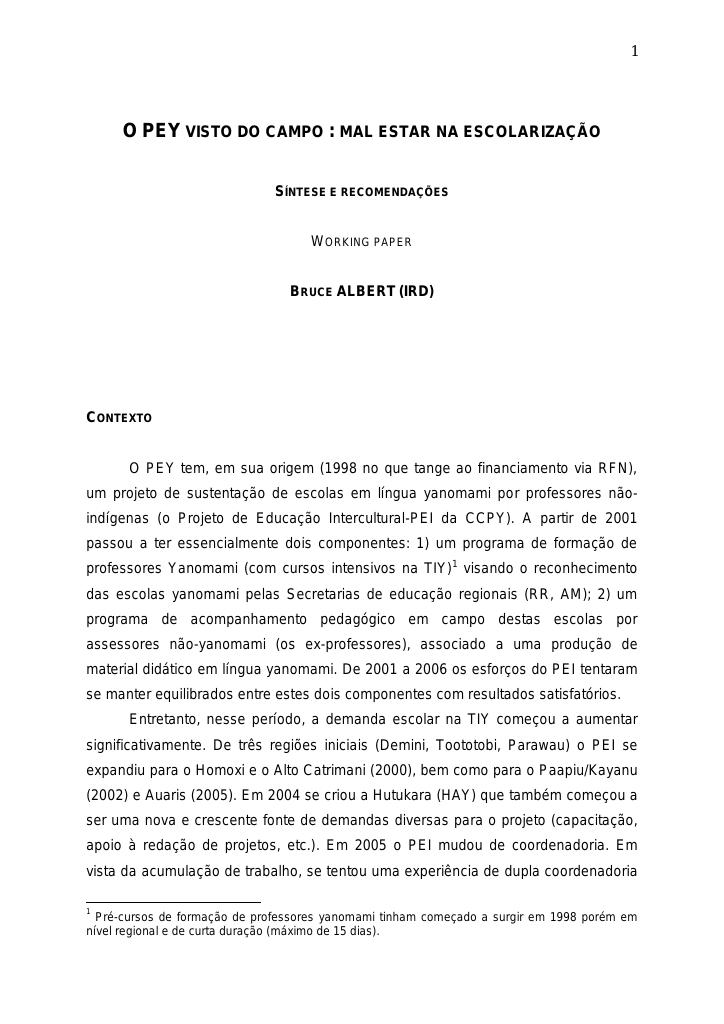Evaluering
The Yanomami Education Project and the public politics of alternative education as seen from the field
ISA Yanomami (prev. CCPY) works to support and strengthen the indigenous population in the Yanomami Indigenous Territory, located in the states of Amazonas and Roraima in the North of Brazil. The project focuses on education and capacity building, and works actively towards policymakers to improve public policy. The evaluation was carried out in October 2011, and includes challenges and is focused on future dilemmas and opportunities rather than being limited to consider results within the context of the project. The Yanomamis’ history of contact with the national society is relatively recent. Initially the project was a response to the demands of the Yanomami people, that given the intense contact with non-indigenous societies, considered the introduction of a bilingual education as a means to maintain vigor of their own language and at the same time gain access to information and knowledge today crucial to their autonomy. Through the project, ISA has been responsible for training teachers and creating a system of multilingual education, with Portuguese as a second language. After an initial phase, students chosen by their communities started training through the project and gradually began to act as teachers. Since 2001 the PEY has had two main components: 1) a training program for Yanomami teachers aimed at gaining recognition from the public authorities. By 2009 the first group of 18 teachers graduated and 2) a program of pedagogic monitoring of these schools by field assessors, and the production of educational materials in the local languages.
